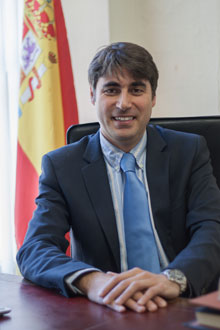Spain Non-Lucrative Visa to Permanent Residency
Published on 14/08/2025
How to get Spanish citizenship if you’re a British national can feel complex—but it doesn’t have to be. This simple, step-by-step guide explains the different paths available to UK citizens, from marriage to descent or long-term residency. With new deadlines like the Grandchildren’s Law and updated post-Brexit rules, it's crucial to understand your options, gather the right documents, and act on time. Written by legal experts, this article gives you everything you need to start your application with confidence.

Photo by Freepik
Pros and Cons of Getting Spanish Citizenship as a British
Deciding whether to pursue Spanish citizenship is a big step for any British national. It comes with long-term benefits, but also some legal and practical trade-offs—especially post-Brexit. Below is a clear overview of what you gain and what you give up by completing your citizenship application.
Benefits:
- EU rights restored: Becoming a Spanish citizen restores your freedom of movement within the EU. You can live, work, or retire in any EU country without a visa.
- Spanish passport: You'll be entitled to one of the most powerful passports globally, with visa-free access to over 190 countries.
- Stability: You'll no longer need to renew residency permits, apply for visas, or maintain ties to your UK status.
- Access to rights: Full rights to vote in Spanish elections, hold public positions, and benefit from national support schemes.
- Inheritance & tax simplification: You're treated as a full national, which can simplify inheritance and property ownership laws.
Possible Downsides:
- Dual citizenship restrictions: Spain generally does not allow dual citizenship with the UK. Most British citizens must renounce their UK nationality during the process (with exceptions in some cases, such as Sephardic Jews or Latin American citizens).
- Bureaucracy: The process requires a full set of legalised documents, language exams, and can take 2–3 years or more.
- Tax implications: Becoming a Spanish citizen may affect your tax residence and obligations in both countries—requiring careful planning.
For many UK expats, the pros outweigh the cons, but it's essential to evaluate your specific situation, especially if you own property, receive a pension, or have family living abroad.
The 4 Ways of Obtaining Spanish Citizenship
There isn't just one path to getting Spanish citizenship—in fact, there are four. Each has specific eligibility requirements depending on your personal history, residency status, family ties, or legal situation in Spain. Below we explain the four most common legal routes for British nationals, including key documents, deadlines, and practical tips to help you choose the right one.
Marriage
One of the fastest ways for a UK citizen to apply for Spanish citizenship is through marriage to a Spanish national. However, marriage alone is not enough. You must have been married for at least one year and have lived together in Spain continuously during that period.
Key requirements:
- Valid marriage certificate registered in Spain
- One year of legal and continuous residency in Spain after marriage
- Proof of cohabitation, such as utility bills or empadronamiento
- Standard citizenship documents: passport, birth certificate, criminal record, and exams (DELE A2 and CCSE)
This route avoids the usual 10-year requirement and is popular among British nationals married to Spanish partners or long-term residents.
Citizenship By Option (<18 years)
Minors under 18 may apply for citizenship by option if they are the children of a Spanish national or have been legally adopted by one. This process is faster and more flexible than naturalisation and doesn't require years of prior residency.
Eligibility applies in cases such as:
- A British child born to a Spanish parent or who has acquired Spanish nationality
- A minor adopted by Spanish citizens
- Children born in Spain whose parents later acquire Spanish citizenship
This path requires submitting the option declaration and supporting documents to the Civil Registry. It's a highly recommended solution for British families with young children living in Spain.
Citizenship By Descent
Known as the Grandchildren's Law, this route allows British nationals to obtain Spanish citizenship by descent if they are grandchildren of Spanish nationals who left Spain during the Civil War or Franco regime.
This is a historic opportunity created under the Ley de Memoria Democrática and ends in October 2025. After that, the legal pathway may close entirely.
Main requirements:
- Documented proof of Spanish descent (birth and marriage certificates)
- Evidence that the Spanish ancestor left due to political exile
- Valid passport and UK documentation
- Application filed at a Spanish consulate or Civil Registry
This is a unique and time-sensitive option, ideal for second-generation British citizens with Spanish heritage.
Naturalisation (residency)
This is the most common and structured route: applying through naturalisation after 10 years of legal residency in Spain.
Requirements:
- 10 years of continuous and legal residency
- Good conduct, proven via criminal background checks from the UK and Spain
- Cultural and linguistic integration (pass DELE A2 and CCSE exams)
- Full set of legalised documents, including birth certificate, passport, padron, residency card, etc.
Many British nationals reach this stage after residing in Spain under Spain's NLV visa, which serves as a common first step toward long-term legal residency. It's important to ensure that all years of residency are uninterrupted and officially recognised by the Spanish authorities.
Exceptions to the 10-year rule apply:
- Only 2 years for nationals from Ibero-American countries, Andorra, Philippines, or Equatorial Guinea
- Only 1 year for individuals born in Spain or married to a Spanish citizen (as seen above)
This route is the most complete but also the most demanding—both in documentation and timeline.
The Fastest and Safest Way to Get the Citizenship
If you're a British national wondering how to apply for Spanish citizenship, there's one thing you should know: doing it alone can lead to delays, rejection, or even legal setbacks. Spanish bureaucracy is complex—especially when dealing with residency, dual citizenship, or historical cases like the Grandchildren's Law. The fastest and safest way to ensure success is to work with a trusted legal expert.
The law firm Enrique Sánchez specialises in helping UK citizens with citizenship applications across all four legal routes: from marriage and naturalization, to descent and underage option claims. Their team understands every administrative step—from gathering your documents, translating them, and handling deadlines, to defending your file if the application is questioned by the Civil Registry.
What sets them apart:
- They speak fluent English and explain every step clearly
- They have a track record of successful Spanish nationality applications
- They offer personalised support with residency visas, birth certificates, and even post-approval documentation like your passport
Avoid the risk of incomplete submissions or endless delays. If you're serious about getting Spanish citizenship, working with a specialist like Enrique Sánchez ensures the process is handled with precision, speed, and peace of mind.
Some Final Tips from a Spanish Law Expert
Getting Spanish citizenship is a long-term process that requires legal awareness, personal commitment, and flawless timing. Having helped hundreds of UK clients, our legal team has identified the most common mistakes—and how to avoid them. These final recommendations will save you time, money, and stress.
Plan Early and Be Aware of Deadlines
A frequent mistake is leaving things to the last minute—especially for time-sensitive cases like the Grandchildren's Law, which closes in October 2025. Other deadlines may affect the expiration of key documents, appointment availability, or residence requirements.
It's also important to align your citizenship timeline with your visa status, tax year, or pension planning. Starting early gives you margin to correct any legal gaps before submitting your application.
Organise Documents Precisely
Spanish authorities expect your application to be complete and clearly structured. Missing documents, incorrect translations, or expired paperwork are the top reasons for rejection.
Make sure you:
- Use official sworn translations
- Legalise UK documents with the apostille
- Submit up-to-date records (less than 3 months old)
- Follow the exact document order requested by the Civil Registry
Proper organisation shows seriousness and helps your file move faster through review stages. The law firm Enrique Sánchez offers tailored support to review and prepare all required documents.
Think Beyond the Citizenship Application
Getting Spanish nationality is just one part of your legal life in Spain. Many British expats also need help with:
- Buying property and understanding taxes
- Managing inheritance law between the UK and Spain
- Resolving civil disputes or contractual problems
- Handling immigration renewals or family reunification
The firm Enrique Sánchez is more than a citizenship expert—they're a full-service law office supporting UK citizens with every aspect of Spanish law. From property transactions to tax residency or family law, they ensure that your life in Spain is not only legal—but secure and well protected.
For those still unsure how to get Spanish citizenship, it's advisable to first review your property, inheritance, and residency situation with legal professionals like Enrique Sánchez, who can build a complete and compliant legal strategy.
FAQ about Spanish Nationality Applications
British nationals applying for Spanish citizenship often share the same doubts about timing, cost, and legal complexity. Below are some of the most frequently asked questions answered by legal experts.
How much does the process cost?
The cost of applying for Spanish nationality varies depending on the legal route and whether you choose to use professional assistance. In general, expect to pay for:
- Official translations and document legalisation
- Spanish language and cultural exams (DELE A2 and CCSE)
- Criminal background checks from the UK and Spain
- Consular or Civil Registry fees (where applicable)
- Legal advice (recommended for complex cases)
Applicants typically spend between €500 and €1,500 on documentation alone. If you hire a law firm like Enrique Sánchez, the cost will also include case preparation, submission, and representation. However, this support often saves time and prevents rejection due to minor errors.
How long does it take to get Spanish citizenship?
Most citizenship applications take 1.5 to 3 years from submission to resolution, although timelines vary by route and regional Civil Registry. Cases involving naturalisation or dual nationality checks may take longer, especially when documents from the UK must be validated.
The Ministry of Justice is legally required to respond within a year, but in practice, backlogs are common. Having a complete and well-organised application file can help accelerate the process.
Is there any deadline to apply?
Yes—particularly for those applying via citizenship by descent under the Grandchildren's Law. This historic legislation is part of the Ley de Memoria Democrática and offers a temporary pathway for UK nationals with Spanish ancestry.
The deadline to apply is October 2025. After this date, the option may no longer be available.
All other citizenship paths (such as naturalisation or marriage) remain open without specific cut-offs, but documents must always be submitted within their valid timeframe—usually within 3 months of issuance.
Why choose a Spanish lawyer for your Citizenship process?
Applying for Spanish citizenship as a UK national is not just a matter of forms—it's a legal process involving international documentation, official translations, consular coordination, and deadlines that can't be missed.
A specialised lawyer:
- Knows how to deal with both UK and Spanish legal systems
- Can prepare your documentation according to Civil Registry standards
- Speaks fluent English and avoids miscommunication
- Defends your application if it's questioned or delayed
- Tracks updates like the Grandchildren's Law or changes in Spain's nationality rules
Choosing an expert like the team at Enrique Sánchez is not just about convenience—it's about maximising your chances of approval and protecting your time, documents, and legal status in Spain.
For a smooth and successful Spanish citizenship application, legal support makes all the difference. To avoid delays or mistakes, you can contact the law firm Enrique Sánchez, specialists in nationality, residency, and immigration law for UK citizens in Spain.



